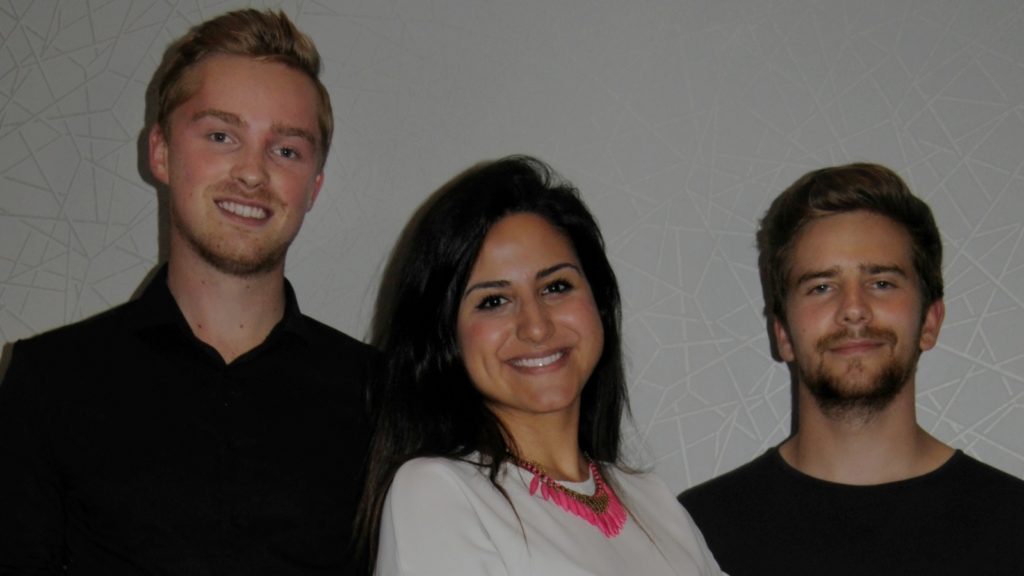South Africa’s esports scene is set for a major showdown as Hyprop and MTN introduce SHIFT COD, a Call of Duty tournament forming part…
How Moroccan entrepreneur chose SA to launch wearable security device Seon

When Moroccan entrepreneur Samia Haimoua and her three German co-founders of startup Seon were looking for a country to launch their wearable panic button, they chose South Africa over Morocco. More specifically they chose Cape Town.
The four, who launched the startup in July last year, expect to begin selling their security device to Cape Town residents later this month and are also in talks with a ride-sharing company.
When activated the device sends a call for help via the user’s cellphone to the nearest security officials. Seon promises users reaction times of no more than five minutes and Haimoua claims that in tests the startup has run, the reaction time has come down to as low as three minutes.
We opted for SA for two main reasons: security and payments infrastructure and higher tech maturity, says Seon founder
“At the time, we were still looking into what market made sense to start with. We ended up having South Africa or Morocco as two potential markets with high-impact potential — we opted for SA for two main reasons: security and payments infrastructure and higher tech maturity,” Haimoua said.
“The Moroccan market for security is based on the army and public authority. If I want to do a B2G (business to government) deal it can take one year minimum,” she added.
She said the idea to target the device at Capetonians came partly from one of the co-founders, Finn Plotz, who visited Cape Town a few years ago and remembered how he didn’t feel all that safe walking the city’s streets. The four — who also include Carl Turner and Nils Löwe — were later introduced to the SA market through the South African consulate in Germany.
Haimoua said she and her three co-founders flew to South Africa in November last year to test the waters and hold initial talks with private security companies.
“In January, we flew in again to deploy software to security companies control rooms and test guards apps on the go, and we continued testing, iterating the security products and measuring the time of intervention ourselves, since we were acting as users to trigger alarms across Cape Town — additionally, we carried out on on-boarding or unlocking new areas of protection,” she said.
‘An Uber for security’
Initially Haimoua’s idea was to create an “Uber” for security for people who felt in danger in the streets, “not through an app, but a hardware or wearable that could be integrated in people’s lifestyle, and triggered easily and discreetly” she told Ventureburn.
The idea drew from her own experience of feeling unsafe in the streets of Morocco where she was attending university — including one particular incidence when one night in a fit of anxiety she kicked a man who she believed to be following her (read about it here).
In February last year she moved to Germany where she took part in F-Lane and later featured at the Mobile World Congress there with a working prototype.
It was there that she met Turner, Plotz and Löwe and started Securella. The startup was able to raise $500 000 from some private investors, including Mark Miller and Stefan Kolle and a private-public entity. Together the investors took a 25% share in the company.
The four then changed the name to Seon. “It was also based on feedback in SA that we decided to re-brand the company into Seon, to make it a unisex product but also to provide more “psychological” reassurance with a less “soft” brand name,” explained Haimoua.
She said Seon plans to sell the device at R650, while contracts are priced at R250 per month or R150 per month if you opt for a six-month plan.
Device to target affluent areas
Initially the startup will cover mostly areas close to the Cape Town’s city centre and its more affluent southern Suburbs — which are far from the most dangerous in the city. Most murders, according to crime statistics, take place in the Cape Flats.
But Haimoua admits that the startup has to “start somewhere” because any new company has “limited resources”.
Yet perhaps it’s not surprising that the startup chose Cape Town as the first city to launch its product. The city is ranked at one of the most violent in Africa — and 15th out of 50 cities for last year, in a list released in March by the Mexican Council for Public Security and Criminal Justice.
The question then is, will the device go so far as to help reduce the city’s sky-high murder rate?
Featured image (from left to right): Seon founders Finn Plotz, Samia Haimoura and Carl Turner. Nils Löwe is not present in the photo, as he was in Germany at the time.

